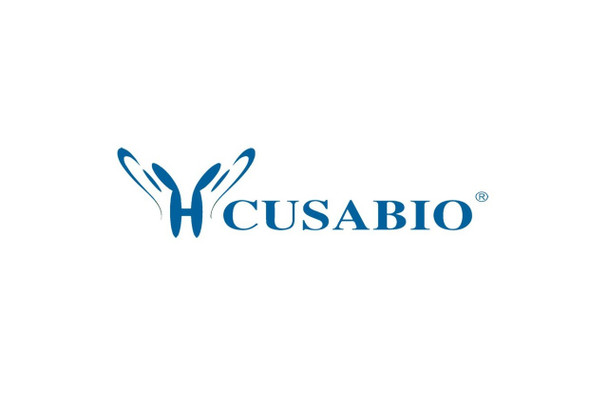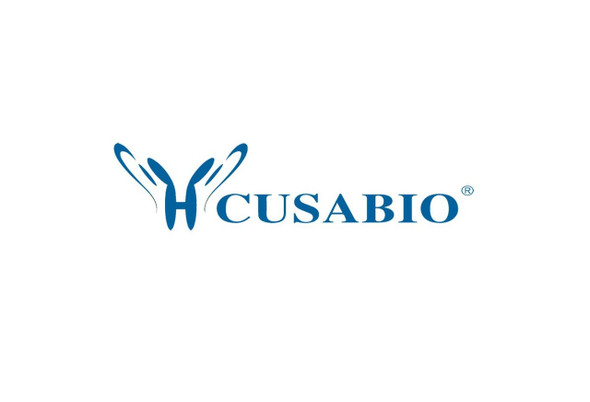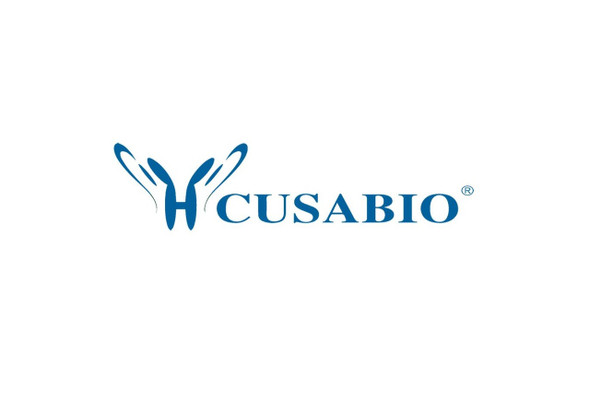Cusabio Human Recombinants
Recombinant Human Corticotropin-releasing factor receptor 1 (CRHR1), partial | CSB-EP005965HU
- SKU:
- CSB-EP005965HU
- Availability:
- 13 - 23 Working Days
Description
Recombinant Human Corticotropin-releasing factor receptor 1 (CRHR1), partial | CSB-EP005965HU | Cusabio
Alternative Name(s): Corticotropin-releasing hormone receptor 1 ;CRH-R-1 ;CRH-R1
Gene Names: CRHR1
Research Areas: Neuroscience
Organism: Homo sapiens (Human)
AA Sequence: SLQDQHCESLSLASNISGLQCNASVDLIGTCWPRSPAGQLVVRPCPAFFYGVRYNTTNNGYRECLANGSWAARVNYSECQEILNEEKKSKVHYHVAVI
Source: E.coli
Tag Info: N-terminal GST-tagged
Expression Region: 24-121aa
Sequence Info: Partial
MW: 37.9 kDa
Purity: Greater than 90% as determined by SDS-PAGE.
Relevance: G-protein coupled receptor for CRH (corticotropin-releasing factor) and UCN (urocortin). Has high affinity for CRH and UCN. Ligand binding causes a conformation change that triggers signaling via guanine nucleotide-binding proteins (G proteins) and down-stream effectors, such as adenylate cyclase. Promotes the activation of adenylate cyclase, leading to increased intracellular cAMP levels. Inhibits the activity of the calcium channel CACNA1H. Required for normal bryonic development of the adrenal gland and for normal hormonal responses to stress. Plays a role in the response to anxiogenic stimuli.
Reference: A novel CRF1 splice isoform involved in neurodegenerative and stress disorders.Sherrin T., Murthy S.R., Spiess J.cDNA clones of human proteins involved in signal transduction sequenced by the Guthrie cDNA resource center (www.cdna.org).King M.M., Aronstam R.S., Sharma S.V. Human protein factory for converting the transcriptome into an in vitro-expressed proteome.Goshima N., Kawamura Y., Fukumoto A., Miura A., Honma R., Satoh R., Wakamatsu A., Yamamoto J., Kimura K., Nishikawa T., Andoh T., Iida Y., Ishikawa K., Ito E., Kagawa N., Kaminaga C., Kanehori K., Kawakami B. , Kenmochi K., Kimura R., Kobayashi M., Kuroita T., Kuwayama H., Maruyama Y., Matsuo K., Minami K., Mitsubori M., Mori M., Morishita R., Murase A., Nishikawa A., Nishikawa S., Okamoto T., Sakagami N., Sakamoto Y., Sasaki Y., Seki T., Sono S., Sugiyama A., Sumiya T., Takayama T., Takayama Y., Takeda H., Togashi T., Yahata K., Yamada H., Yanagisawa Y., Endo Y., Imamoto F., Kisu Y., Tanaka S., Isogai T., Imai J., Watanabe S., Nomura N.Nat. Methods 5:1011-1017(2008)
Storage: The shelf life is related to many factors, storage state, buffer ingredients, storage temperature and the stability of the protein itself. Generally, the shelf life of liquid form is 6 months at -20?/-80?. The shelf life of lyophilized form is 12 months at -20?/-80?.
Notes: Repeated freezing and thawing is not recommended. Store working aliquots at 4? for up to one week.
Function: G-protein coupled receptor for CRH (corticotropin-releasing factor) and UCN (urocortin). Has high affinity for CRH and UCN. Ligand binding causes a conformation change that triggers signaling via guanine nucleotide-binding proteins (G proteins) and down-stream effectors, such as adenylate cyclase. Promotes the activation of adenylate cyclase, leading to increased intracellular cAMP levels. Inhibits the activity of the calcium channel CACNA1H. Required for normal embryonic development of the adrenal gland and for normal hormonal responses to stress. Plays a role in the response to anxiogenic stimuli.
Involvement in disease:
Subcellular Location: Cell membrane, Multi-pass membrane protein, Endosome
Protein Families: G-protein coupled receptor 2 family
Tissue Specificity: Predominantly expressed in the cerebellum, pituitary, cerebral cortex and olfactory lobe.
Paythway:
Form: Liquid or Lyophilized powder
Buffer: If the delivery form is liquid, the default storage buffer is Tris/PBS-based buffer, 5%-50% glycerol. If the delivery form is lyophilized powder, the buffer before lyophilization is Tris/PBS-based buffer, 6% Trehalose, pH 8.0.
Reconstitution: We recommend that this vial be briefly centrifuged prior to opening to bring the contents to the bottom. Please reconstitute protein in deionized sterile water to a concentration of 0.1-1.0 mg/mL.We recommend to add 5-50% of glycerol (final concentration) and aliquot for long-term storage at -20?/-80?. Our default final concentration of glycerol is 50%. Customers could use it as reference.
Uniprot ID: P34998
HGNC Database Link: HGNC
UniGene Database Link: UniGene
KEGG Database Link: KEGG
STRING Database Link: STRING
OMIM Database Link: OMIM









